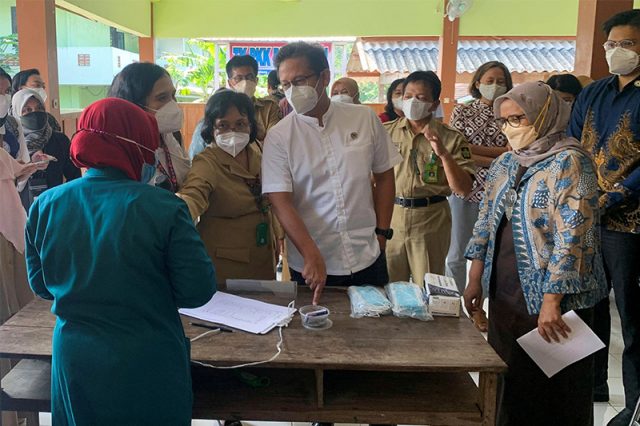
JAKARTA — Indonesia plans to run clinical trials of several vaccines to fight surging cases of tuberculosis (TB) this year, with concerns the disease might affect economic growth, ministers said on Monday last week.
The Southeast Asian country has seen TB cases spike during the past few years, with the health ministry estimating there were over 1 million cases in 2023, compared to around 820,000 in 2020.
In 2022, deaths from TB in Indonesia reached around 134,000, the second highest in the world after India.
Three-quarters of the patients were in the productive age group and 45% of all patients did not work, raising concerns that the spread of the disease is hurting economic activity, human development minister Muhadjir Effendy told a government meeting with provincial leaders. The minister did not provide an estimate of the impact on growth.
Health minister Budi Gunadi Sadikin said Indonesia plans to conduct a trial of TB vaccine developed by global pharmaceutical company GlaxoSmithKline GSK.L in July, involving 2,500 people. The vaccine development is funded by the Bill and Melinda Gates Foundation.
A clinical trial for a vaccine made by China’s CanSino Biologics 6185.HK is also expected this year, Budi said.
“We hope to be one of the first countries to do tuberculosis vaccination,” Budi told the same meeting.
“We’re also in the stage to conduct a clinical trial for an mRNA vaccine that is being developed by BioNTech BNTX.O, that had founded COVID vaccine for Pfizer,” Budi said.
In the same meeting, home affairs minister Tito Karnavian ordered provincial leaders to set up task forces to detect TB infections.
Indonesia aims to lower its mortality rate from TB by 80% to only six deaths per 100,000 lives by 2030, Budi said.
—Reporting by Dewi Kurniawati and Stefanno Sulaiman; Editing by Gayatri Suroyo and Lincoln Feast









